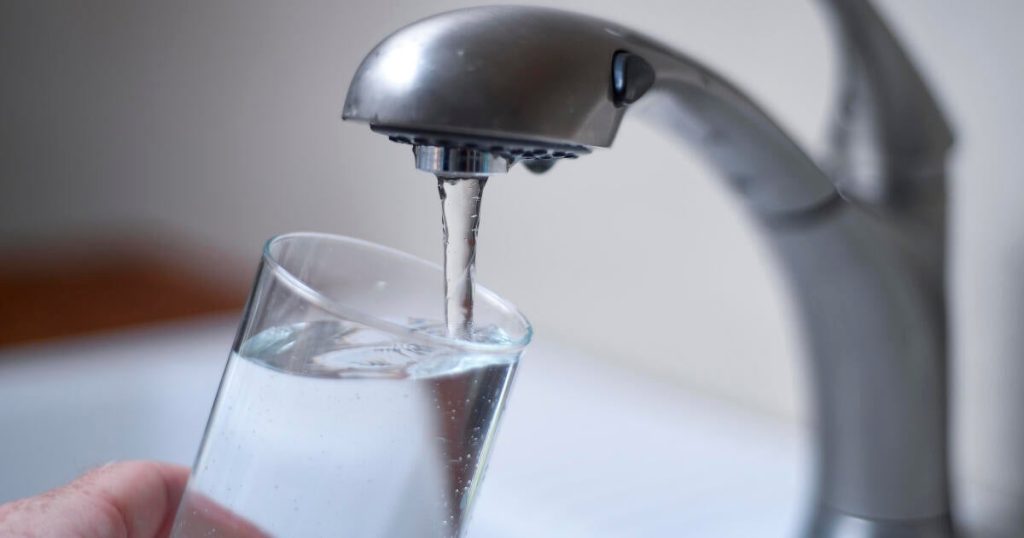Utah Considers Historic Ban on Fluoride in Public Water Systems
Utah is on the brink of making history as the first state to implement a complete ban on fluoride in public water systems. Under a newly proposed bill, cities and communities would no longer have the autonomy to decide whether to add fluoride, a mineral widely recognized for its role in preventing tooth decay. This landmark legislation has sparked significant debate, particularly as it aligns with skepticism expressed by federal health officials and marks a departure from decades of public health consensus. The bill, which recently cleared its final legislative hurdle, now awaits the approval of Utah Governor Spencer Cox, whose stance remains uncertain.
A Statewide Ban with National Implications
The proposed ban on water fluoridation in Utah has long-reaching implications that extend beyond state borders. Republican state Rep. Stephanie Gricius and Sen. Kirk Cullimore, the bill’s sponsors, argue that fluoridation is too costly. However, critics counter that the benefits of fluoride—particularly for low-income residents who may lack access to regular dental care—far outweigh the financial burden. Utah currently ranks 44th in the nation for fluoridated water access, with only about two in five residents receiving it through community water systems. The bill’s advancement has drawn national attention, as it sets a precedent that could inspire similar measures in other states.
Federal Skepticism and the Role of Robert F. Kennedy Jr.
The push to ban fluoride in Utah coincides with growing skepticism at the federal level, notably from Robert F. Kennedy Jr., the new federal health secretary. Kennedy has publicly expressed concerns about fluoride, linking it to a range of health issues, including arthritis, bone fractures, and neurodevelopmental disorders. While Kennedy’s claims have garnered attention, they are strongly disputed by dental experts. Dr. Aaron Yancoskie, associate dean of academic affairs at Touro College of Dental Medicine, emphasizes the overwhelming scientific evidence supporting fluoride’s safety and effectiveness in reducing tooth decay. "The data is excellent and solid, going back 75 years," Yancoskie stated in an interview.
The Cost Debate and Individual Choice
Lawmakers backing the Utah bill argue that the cost of fluoridation is prohibitive, but advocates for fluoridation counter that it remains the most cost-effective method of preventing tooth decay on a large scale. Lorna Koci, chair of the Utah Oral Health Coalition, warns that removing fluoride from public water could disproportionately harm low-income families who rely on it as their primary form of preventive dental care. Bill sponsor Rep. Gricius frames the issue as one of personal choice, stating, "This isn’t anti-fluoride legislation; it is pro-informed consent and individual choice." The bill includes provisions to deregulate fluoride prescriptions, allowing individuals to opt for fluoride pills if they choose.
Community Response and the Dental Health Divide
The debate over fluoridation is not new to Utah, and opinions within the state are divided. In 2023, voters in Brigham City overwhelmingly rejected a proposal to remove fluoride from their public water supply, with the measure being defeated by a margin of more than two to one. Dental professionals, including Val Radmall of the Utah Dental Association, have shared personal experiences highlighting the importance of fluoridation. Radmall recalls his time working in a non-fluoridated community, where he noticed a significant increase in cavities among patients who grew up locally. "I’d have a patient come in without cavities, and I’d say, ‘You didn’t grow up here, did you?’" he remarked.
The Broader National Context
Utah’s proposed ban on fluoridation comes at a time when other cities and states are also reevaluating their stance on the issue. A federal judge recently ordered the U.S. Environmental Protection Agency to regulate fluoride levels in drinking water due to potential risks to children’s intellectual development. While some municipalities have already removed fluoride from their water supplies, others continue to embrace it as a cornerstone of public health. With nearly two-thirds of the U.S. population currently drinking fluoridated water, Utah’s decision could have far-reaching consequences for the nation’s approach to preventive dental care. As the debate unfolds, one thing is clear: the fate of fluoride in Utah—and potentially beyond—hangs precariously in the balance.















